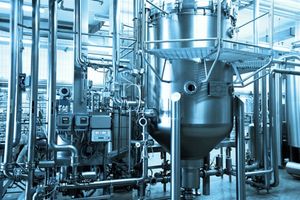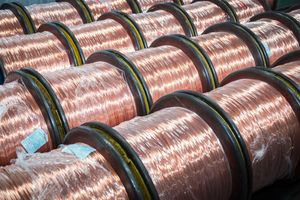In the modern era of automation and precision engineering, servo motors play a vital role in powering some of the most advanced technologies. From robotics and industrial automation to consumer devices, these motors are known for their accuracy, efficiency, and reliability. Two key areas where servo motors have become indispensable are CNC machines and 3D printing. Both technologies rely heavily on precision, speed, and smooth motion control qualities that servo motors are designed to deliver.
In this article, we will explore what makes servo motors so important, their role in CNC machines and 3D printers, and the benefits they bring to these industries.
What Are Servo Motors?
Servo motors are electromechanical devices that convert electrical signals into controlled mechanical motion. Unlike conventional motors, servo motors are designed to provide high precision by continuously monitoring and adjusting their position, speed, and torque with the help of a feedback mechanism.
This feedback loop, usually implemented with encoders or sensors, ensures that the motor performs exactly as commanded. The result is precise control of motion, making servo motors essential in fields where accuracy and reliability are critical.

The Importance of Servo Motors in CNC Machines
CNC (Computer Numerical Control) machines are used in industries like aerospace, automotive, and manufacturing to create complex parts with extreme precision. These machines rely on servo motors to perform tasks such as cutting, milling, drilling, and grinding.
1. Precision and Accuracy
One of the biggest reasons servo motors are used in CNC machines is their ability to provide pinpoint accuracy. CNC operations require tolerances often measured in microns, and servo motors make this possible by constantly adjusting their position through the feedback loop.
2. High Speed and Efficiency
CNC machines often need to operate at high speeds without compromising accuracy. Servo motors can deliver rapid acceleration and deceleration, ensuring that the machine works faster while still maintaining quality.
3. Smooth Motion Control
Servo motors eliminate vibration and jerky movements, which is especially important when machining delicate or complex parts. The smoothness of motion improves the finish quality of the workpiece.
4. Energy Efficiency
By delivering torque only when required, servo motors help CNC machines consume less power compared to traditional motors. This efficiency translates into lower operating costs for industries.
5. Flexibility in Applications
Servo motors are versatile and can be used in multiple CNC functions, whether it’s driving spindles, controlling axes, or powering tool changers. Their adaptability makes them a crucial part of the entire CNC ecosystem.
The Role of Servo Motors in 3D Printing
3D printing, also known as additive manufacturing, has revolutionized prototyping and production by allowing complex designs to be created layer by layer. AC servo motors are a major contributor to the success of this technology.
1. Precise Layer Deposition
Accuracy in positioning is the backbone of 3D printing. Servo motors ensure that the printer head or extruder moves precisely along the X, Y, and Z axes, allowing each layer of material to be placed exactly where it should be.
2. High-Resolution Printing
With AC servo motors, 3D printers can achieve higher resolution and better print quality. The smooth and accurate control of motion ensures that even the smallest details of a design are captured.
3. Speed and Productivity
As 3D printing expands into industrial-scale manufacturing, speed becomes a critical factor. Servo motors provide the necessary acceleration and deceleration, enabling printers to produce parts more quickly without losing accuracy.
4. Reduced Material Waste
Thanks to the controlled motion of servo motors, 3D printers minimize errors during printing. This reduces the chances of failed prints and lowers material wastage, an important advantage when working with expensive printing materials.
5. Support for Complex Geometries
Servo motors allow 3D printers to follow intricate tool paths and handle complex geometrical shapes. This capability has opened doors for innovations in medical implants, aerospace components, and even custom consumer products.
Why Servo Motors Are Preferred Over Other Motors
Both CNC machines and 3D printers could theoretically use stepper motors or other motor types. However, servo motors stand out for several reasons:
- Closed-loop feedback system ensures accuracy and reduces the risk of missed steps.
- Higher torque at high speeds, making them ideal for demanding applications.
- Energy-efficient operation that reduces long-term costs.
- Durability and reliability for continuous industrial use.
While stepper motors are often cheaper, servo motors provide better performance in terms of accuracy, speed, and efficiency, which is why they are the preferred choice for advanced applications.

Benefits of Using Servo Motors in CNC and 3D Printing
The integration of servo motors in CNC machines and 3D printers brings several benefits that go beyond performance. These include:
- Consistent Quality – Each product or part produced meets exact specifications.
- Reduced Downtime – Servo motors are reliable and require less maintenance.
- Scalability – From small prototypes to mass production, servo motors handle it all.
- Cost Savings – Efficiency in power consumption and reduced material waste cut down operational costs.
- Enhanced Innovation – Designers and engineers can push the limits of what is possible in manufacturing.
Future of Servo Motors in CNC and 3D Printing
With the continuous evolution of Industry 4.0 and smart manufacturing, the role of servo motors is expected to expand even further. Integration with AI, IoT, and advanced sensors will make CNC machines and 3D printers more intelligent, efficient, and capable of self-optimizing.
For example, in the future, servo motors could automatically adjust printing speed or machining parameters based on real-time data, ensuring the highest level of quality and efficiency without human intervention.
Conclusion
Servo motors are at the heart of CNC machines and 3D printing technologies, driving the precision, speed, and efficiency that modern industries demand. Whether it’s machining a complex aerospace component or printing a delicate medical implant, servo motors make it possible to achieve results that were once thought impossible.
As manufacturing continues to move toward automation and innovation, the role of servo motors will only grow more important. Their ability to deliver accuracy, reduce costs, and enable creativity ensures that they remain a cornerstone of advanced engineering and production.






